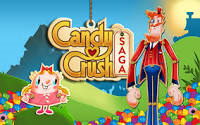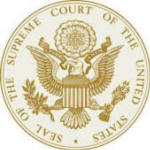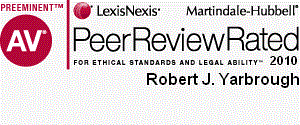Newsletter Issue 60 - February 2014
In this issue:
Patent trolls
Candy Crush trademark
Supreme Court IP docket
Ask Dr. Copyright ...
Dear Doc:
Last month, you promised that you'd continue your explanation of
patents and copyrights with a rant about patents and trolls. So...?
What, exactly, do you have against trolls, other than the fact that
they live under bridges and threaten goats?
Signed,
Been Waiting a Month
Dear BWaM:
OK. So as not to disappoint, here goes!
The press has been overflowing for the past few years with
breathless articles about evil "patent trolls". You see, back in the
late 1990s semiconductor giant Intel was being sued for patent
infringement by many patent owners. The company's lawyer, Peter
Detkin, called one of the lawyers representing the patent owners a
"patent extortionist" in an article about the company, but others at
Intel did not like that term. There was a contest, and Detkin, Anne
Gundelfinger and Mark Davis somehow came up with "patent troll" as
an alternative.
Remember the story of how the trolls hid under a bridge that they
had not built, but demanded a toll from everyone who crossed? Me
neither. The original Norwegian folk tale is completely silent on
who built the bridge, but it's pretty clear that the goats had not
done so, right? Goats lack opposable thumbs. And as there is no
other character in the story...but I digress. The troll term struck
a chord, and came to mean a company that asserted patents on
technology that they had not invented, seeking royalties. Such
companies are clearly evil villains, because they don't invent
anything, and they sue other people using patents that they buy from
inventors. Boo! Hiss! The media climbed on board, and there have
been thousands of publications decrying the "rent seeking behavior"
of the trolls. For a very entertaining overview, click here.
Fast forward to 2014, and you have bills in Congress and the
President of these United States promising to do something to stop
the trolls because they hurt innovation! But...do they really? Let's
think about this.
Suppose you passed a law that says that anyone who owns a piece of
ground and who built a building there could do only one of two
things: occupy it himself, or occupy part of it, and rent the other
part out. He can sell the building, but only to someone who will
only occupy it - and never rent it out, because otherwise, the new
owner would not be the one who built the building - he would only be
seeking to collect rent. He can't move out and rent the entire
building because then he would not be using what he had built, only
seeking to collect rent. Oh, and the original owner would not be
allowed to hire a manager by promising to pay a portion of the rent
collected, and he can't buy the building next door, since he didn't
build it. Forget real estate investment trusts that buy properties
to build a portfolio - they don't build things...they must be evil
too.
So under this new law, what is a property worth? What incentive does
the land-owner have to build his building if he has to live in it
until he can sell it to someone who can only live in it? Easy -
you've just reduced the value of almost every property in America by
a huge amount. No one can be a real estate investor in the resale
market. Period. So why would our country want to do the same thing
to inventors, by limiting their ability to sell their patents?
Because big companies that infringe patents are sick and tired of
getting caught with their hands in the cookie jar, and can afford to
create a fable and lots of press to convince us that their problem
is actually our problem. Congress has taken their money that comes
wrapped in that same fable, and the President knows a good story
when he hears it.
It has been pointed out that it costs millions of dollars to defend
against a patent infringement law suit, and that these suits take
years to work their way through the courts. True. But the same is
true of other high-stakes business litigation in many fields. It's
not only the "trolls" who suffer from our less than efficient court
system: Apple and Samsung have been battling for many years, and
there is no end in sight. Few call either of these companies patent
trolls (some surely do), but that doesn't stop anyone from
complaining that these suits are harmful. It's just strange that
these same complainers seem to be perfectly happy to have and use
the innovations that are supposed to be protected by patents, while
never bothering to ask what the world would look like if nobody
could raise capital by having effective patents in the first place.
(For a great explanation, read William Rosen's The Most Powerful
Idea in the World)
As a registered patent attorney who has represented all kinds of
inventors for more than thirty years (from garage inventors to the
largest multinational corporations) and has been involved in patent
licensing and sale for all of that time, the Doc can simply say that
there is another, more honest definition of "patent troll" -- one
given by Professor R. Polk Wagner of the University of Pennsylvania
School of Law, who said that a patent troll is simply anyone who
would dare to sue ME for patent infringement.
So there you have it. The same old story: don't believe everything
you read on the Internet...World War I started that way.
To get the straight story on intellectual property issues, be sure
to ask the attorneys at LW&H. For reasons that nobody can explain,
they actually enjoy thinking about this stuff.
Until next month,
The Doc.
How Sweet it is...The Candy Crush Saga

Have you ever played the mobile app game, "Candy Crush Saga" by
King.com, Ltd. ("King")? Are you addicted to it? Not me, you say.
More power to you because by some reports King earns a million
dollars a day from users who actually pay for the chance to continue
using this "free" game. The way it works is that after so many moves
or lives, the player has to wait a period of time before he or she
can play again. Some people -- more than a million per day -- can't
wait and opt to spend .99 to avoid the delayed gratification. A
brilliant business model!
In its quest to rule the mobile device game world, King filed a
trademark application for the term CANDY, identifying software
related products, clothing (say spin-offs), and educational services
(say what?). You might ask how in the world a software gaming
company can claim rights to the term "candy". What about Hasbro's
Candy Land and the myriad other candy themed games? Apparently, the
U.S. Patent and Trademark Office ("PTO") did not see it that way. No
one else had applied for CANDY in the same or related product space
and it was King's to take. And so the PTO noticed the trademark for
publication (the penultimate step in the registration process).
Apple, Inc. soon began enforcing King's trademark rights in its App
Store, demanding that developers remove copycat apps as well any
game apps using the term "candy". King also embarked on a campaign
to enforce its trademark rights in CANDY and the term SAGA.
Then the hue and cry! Across the blogosphere, software developers
called foul by the PTO for approving King's registration of CANDY
and criticized the filings as "overreaching" and "predatory."
Independent game developers were so incensed that they created an
online event dubbed "Candy Jam", inviting developers to create games
that use the word "candy." Participants created more than 450 games!
Then, two events occurred. King announced that it was going public
with a $500 million dollar initial public offering and, lo and
behold, it voluntarily abandoned its trademark registration
application for CANDY. King CEO Riccardo Zacconi repented, saying
that his company was "not trying to control the world's use of the
word 'Candy'...only trying to prevent other from creating games that
unfairly capitalize on our success." In another statement, King
noted that its action did not affect its European registration for
CANDY and that it would continue to protect its trademark rights.
So why would King abandon its U.S. trademark application? A little
controversy over a trademark should not deter enforcement of
intellectual property rights. True, but the stakes here are
enormous. Apparently, game developers stirred the pot enough to
cause King to worry about the negative consequences of the trademark
filing and enforcement furor to its $500 million dollar IPO. To calm
the storm of public opinion, it abandoned its trademark claim to
CANDY. The "saga" demonstrates the power of public opinion when
trademark owners are perceived to overreach, particularly when large
amounts of cash are at stake. Sweet!
Back to top.
The Supreme Court Weighs In...

When the Supreme Court decides a case, the result is binding on
all of us. The Court will be busy with patent, copyright and
trademark cases over the next few months. The following are a few
highlights:
1. Are computer-implemented inventions patentable? Particularly, is
a general purpose computer programmed to perform a specific function
patentable? Alice Corp. v CLS Bank International, No. 13-298 will
revisit this question. This case has great importance to software
inventors and persons accused of infringing software patents.
2. Is re-broadcast of a TV program in the form of on-line streaming
to paying subscribers a copyright violation? On the one hand, the
broadcaster released the program to the world when it sent the
program out over the air. On the other hand, the broadcaster still
owns the copyright. American Broadcasting Companies v Aereo, No.
13-461 is the pending Supreme Court case on the subject. See our
previous article.
3. Is a person liable for patent infringement where that person
induces two or more people acting in concert to perform all of the
steps of a method patent when no one person infringes the patent?
This issue is crucial for, say, Internet-enabled inventions where
different steps in the invention can be performed by different
parties and even on different continents. Limelight Networks v
Akamai Technologies, No. 12-786, will answer this question.
4. Can a person be sued by a private party under trademark law for
false advertising for a product that is pervasively regulated under
the Food, Drug and Cosmetic Act? This case will resolve a tension
between two different laws. The case is POM Wonderful v The
Coca-Cola Company, 12-761.
Stay tuned.

